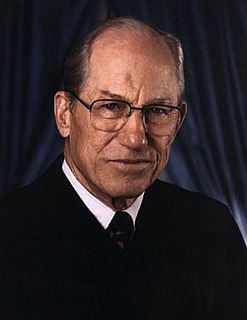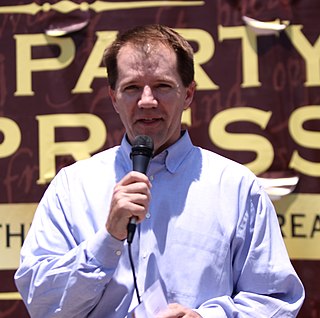A Quote by Sam Brownback
Narrow scope of judicial power was the reason that people accepted the idea that the federal courts could have the power of judicial review; that is, the ability to decide whether a challenged law comports with the Constitution.
Related Quotes
Much of the Constitution is remarkably simple and straightforward - certainly as compared to the convoluted reasoning of judges and law professors discussing what is called 'Constitutional law,' much of which has no basis in that document....The real question [for judicial nominees] is whether that nominee will follow the law or succumb to the lure of 'a living constitution,' 'evolving standards' and other lofty words meaning judicial power to reshape the law to suit their own personal preferences.
Not surprisingly, the federal judiciary nearly always rules in favor of the federal government. Judicial review, contrary to the assurances of its advocates, has hardly restrained Congress at all. Instead it has progressively stripped the states of their traditional powers, while allowing federal power to grow unchecked.
The constitution is either a superior paramount law, unchangeable by ordinary means, or it is on a level with ordinary legislative acts, alterable when the legislature shall please to alter it. It is emphatically the province and duty of the judicial department to say what the law is. This is the very essence of judicial duty.
More fundamentally, however, the answer to petitioners' objection is that there can be no impairment of executive power, whether on the state or federal level, where actions pursuant to that power are impermissible under the Constitution. Where there is no power, there can be no impairment of power.
If Americans loved judicial activism, liberals wouldn't be lying about what it is. Judicial activism means making up constitutional rights in order to strike down laws the justices don't like based on their personal preferences. It's not judicial activism to strike down laws because they violate the Constitution.
Some have argued that the President is required to get permission from a federal court before taking action against a United States citizen who is a senior operational leader of al Qaeda or associated forces. This is simply not accurate. 'Due process' and 'judicial process' are not one and the same, particularly when it comes to national security. The Constitution guarantees due process, not judicial process.
































